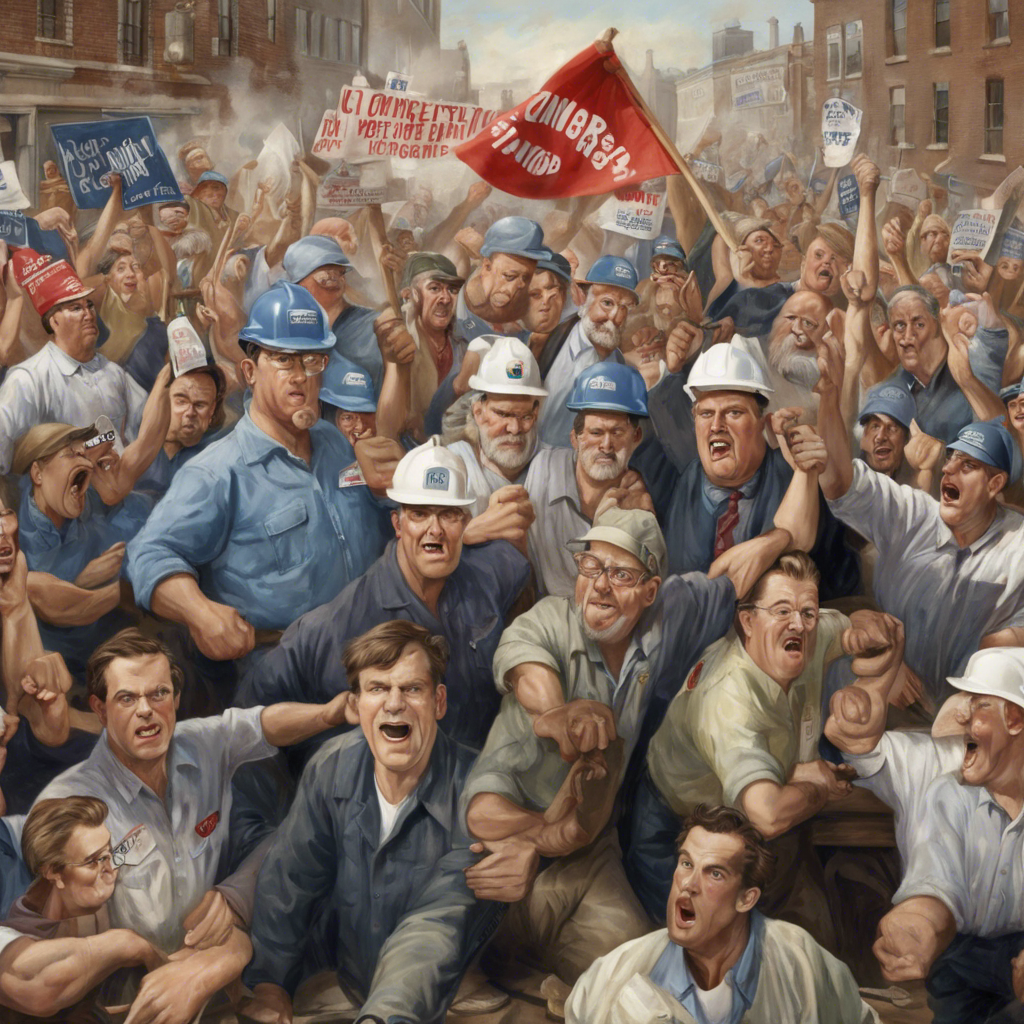The Conservative Case for Supporting Labor Unions: Can Conservatives Embrace Worker Power?

Oren Cass’s Efforts to Reposition Conservatives Towards a Populist Economic Policy
In a year marked by widespread strikes across critical industries, nearly half a million American workers have taken to the picket lines, demanding better workplace conditions and higher pay. However, these workers have found little support from elected Republicans, with figures like Nikki Haley proudly proclaiming themselves as “union busters.” Yet, Oren Cass, a conservative thinker, is attempting to shift the conservative narrative towards a more populist vision of economic policy, one that embraces worker power and sectoral bargaining. But can he persuade his fellow conservatives to listen?
1: The Need for a New Conservative Vision
Oren Cass argues that the traditional fusionist coalition within the Republican Party, built to combat the Soviet Union, fails to address the current challenges posed by China’s rise, de-industrialization, big tech, and worker power. Cass contends that a new conservative vision is required to tackle these issues effectively.
2: The Conservative Case for Labor Unions
Cass makes a compelling case for conservatives to support labor unions. He argues that unions can play a crucial role in promoting worker power and improving the quality of life for American workers. By advocating for sectoral bargaining, where unions negotiate on behalf of entire industries rather than individual companies, Cass believes that conservatives can strike a balance between worker rights and market forces.
3: Overcoming Negative Perceptions of Big Labor
One of the major challenges faced by Cass in convincing conservatives is the negative view many hold of big labor in America today. He acknowledges that there are legitimate concerns about the excesses of certain unions but emphasizes that this should not overshadow the broader benefits that unions can bring to workers. Cass suggests that conservatives need to separate the concept of unions from the negative stereotypes associated with them and focus on the positive impact they can have on workers’ lives.
4: Persuading Fellow Republicans
To win over his fellow conservatives, Cass understands that he needs to present a compelling argument that resonates with their core principles. He emphasizes that supporting labor unions aligns with conservative values of individual liberty, free markets, and a level playing field. By emphasizing the importance of worker power in a changing economic landscape, Cass believes he can persuade Republicans to embrace his viewpoint.
5: The Path Forward
Cass acknowledges that changing the conservative stance on labor unions will not happen overnight. He suggests that conservatives need to engage in a thoughtful and nuanced conversation about worker power and its role in a modern economy. By highlighting real-life examples of successful labor unions and their positive impact on workers, Cass hopes to shift the narrative and build a broader coalition within the conservative movement.
Conclusion:
Oren Cass’s efforts to reposition conservatives towards a more populist economic policy, one that embraces labor unions and worker power, present a compelling alternative to the traditional conservative stance. While facing challenges in overcoming negative perceptions of big labor, Cass believes that by appealing to conservative values and highlighting the benefits of unions, he can persuade his fellow Republicans to embrace his viewpoint. As the labor movement gains momentum and workers continue to demand better conditions, the conservative case for supporting labor unions may prove to be an important step towards a more equitable and inclusive society.










